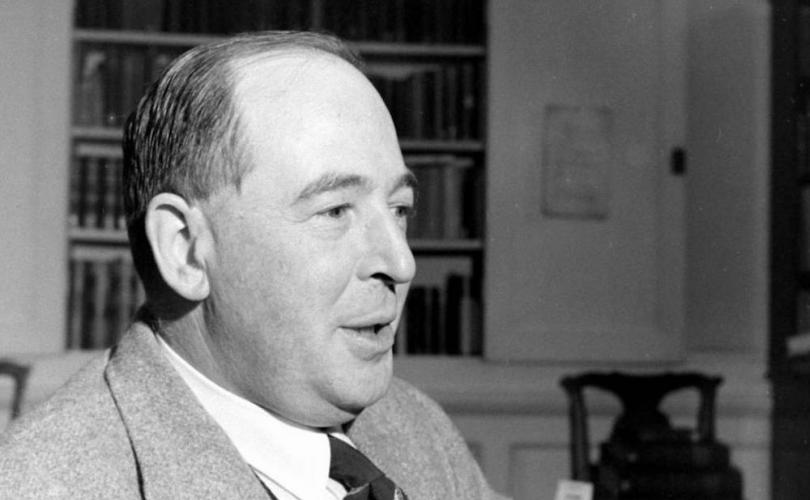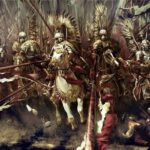Blog Post
Lewis, Tolkien, and the abortion wars
By Jonathon Van Maren
While many of my friends grew up with the Chronicles of Narnia and other works of C.S. Lewis, I was first introduced to the great Oxford don after joining the pro-life movement in university. I’m not sure precisely why, but the works of C.S. Lewis and his friend and fellow fantasy writer J.R.R. Tolkien are extremely popular amongst pro-life activists. My theory has been that with Lewis it is his incisive and memorable apologetics that often prove so useful in debate, and with Tolkien it is the epic battles between good and evil, shot through with the constant reminder that there are many beautiful things worth defending: “There is some good in this world, Mr. Frodo,” says the brave and loyal Samwise Gamgee, “and it’s worth fighting for.”
C.S. Lewis died in 1963 (on the same day as both John F. Kennedy and Aldous Huxley), and so we do not know precisely how he would have reacted to the cataclysmic social changes that rocked the following decades and forever changed our world. The pro-life movement scarcely even existed. I’ve often wondered what men like he and Tolkien would have said of all that we have done and all that we’ve become since they left us—especially since much of Lewis’ philosophical work was so prophetic. Lewis’s step-son Douglas Gresham, the son of his wife Joy Davidman, gave us some insights in a 1992 lecture at Regent College where he described his life with Lewis, the stepfather he knew as Jack.
“I am convinced that if C.S. Lewis were alive today, he would think he had died and was living in Hell,” Gresham told the audience. “And it’s our fault. If you presented Jack with a world in which 60 million children are murdered before they have a chance to be born, he would be absolutely horrified…If you showed Jack a world in which our young people are constantly fed on a diet of gratuitous sex and violence on television…he would be absolutely horrified…I don’t like to think what Jack would feel about today’s world. And I think the apathy of many of us Christians would horrify him equally.”
There’s no reason to think that Gresham is wrong. It is easy to forget sometimes just how much things have changed in such a short period of time—Canadian journalist Peter Stockland has noted that he sometimes feels as if he is a thousand years old, because usually that is the length of time it would take for such an utter and complete cultural transformation to take place. “The greatest evils in the world will not be carried out by men with guns,” Lewis presciently observed, seeming to prophesy the march of the Left through the institutions, “but by men in suits sitting behind desks.”
Unsurprisingly, Lewis did not address abortion often—the United Kingdom did not legalize the practice of killing children in the womb until four years after his death. Abortion was considered obviously immoral by most people back then, and Lewis only mentioned it once that we know of, in one of his letters: “It is certainly not wrong to try to remove the natural consequences of sin provided the means by which you remove them are not in themselves another sin. (E.g. it is merciful and Christian to remove the natural consequences of fornication by giving the girl a bed in a maternity ward and providing for the child’s keep and education, but wrong to remove them by abortion or infanticide.)”
Even fantasy literature has changed since Lewis and Tolkien penned the epics of Narnia and Middle Earth, a fact eloquently bemoaned by Peter Hitchens in First Things recently in an essay titled “Vice and Fire.” The Game of Thrones fantasy of George R.R. Martin, Hitchens wrote, is a dark, twisted, and nihilistic world where evil is almost always rewarded and good almost always punished. There is no good or evil, only a moral compass spinning wildly in every direction, a Nietzschean universe where might makes right. The storytelling might be occasionally compelling, he noted—but there is an utter lack of moral imagination. There is only darkness.
And that is where the tales of Lewis and Tolkien are again so necessary—this time, as an antidote. The world we live in today sometimes seems like the world created by Martin, in that evil seems to be so often rewarded and good so often seems to be punished. But Lewis and Tolkien remind us that doing good is worth it for its own sake—and that in the very end, good will ultimately prevail. Those seeking to defend the weakest and most vulnerable children of our society might face the reckless hate of those who wish to shed blood without being reminded that it is evil, but still—those beautiful ones are worth fighting for.
READ THE REST OF THIS COLUMN AT LIFESITENEWS.COM









I often wonder how important cultural figures in the history of the west would feel about the present state of Western culture. Would they want want burn it the ground? Would those who died in world wars have given their lives for what our culture looks like today. Someone must have written in this vain? Thanks for the link.
Thanks for writing this. I found it quite thought provoking as I do CS Lewis’ work.